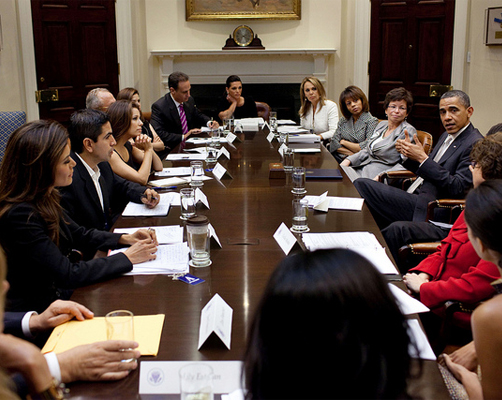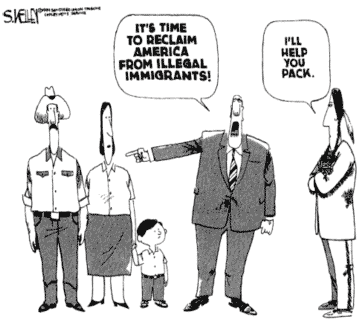
Currently, illegal immigrants who apply for green cards must return to their home countries in order to apply for a visa, but when they do, they are barred from re-entering the United States for three to ten years. The government grants hardship waivers if refusing them to re-enter causes extreme hardship to family members who are American citizens. But these waivers are very, very hard to come by.
Last week, the New York Times reported that the Obama Administration plans to change the rules by shortening the three to ten year period. The new proposal would grant the immigrants provisional waivers, which would virtually guarantee that they’d be able to return quickly. Officials predicted that wait times would be shortened to a matter of weeks.
The move was described by some as a direct appeal to Latino and Hispanic groups as a way to solidify their support for Obama in the 2012 Presidential elections. Republicans complained that the new rule would “grant back-door amnesty to potentially millions of illegal immigrants without a vote of Congress.”
 Although this move is was likely made based on politics, I think it serves as a reminder of the public opinion’s attitudes towards more relaxed immigration policies. Right after 9/11, the country was deeply concerned about national security, which led to immigrant-hostile policies. But folks seem to be a little bit less worried about that these days. Just think about how we feel about TSA. Nine or ten years ago, complaints were rarer.
Although this move is was likely made based on politics, I think it serves as a reminder of the public opinion’s attitudes towards more relaxed immigration policies. Right after 9/11, the country was deeply concerned about national security, which led to immigrant-hostile policies. But folks seem to be a little bit less worried about that these days. Just think about how we feel about TSA. Nine or ten years ago, complaints were rarer.
Immigration will grow in the coming years. Not only are the Latino and Hispanic populations are expected to skyrocket over the next twenty years, so too are many other immigrant populations. In fact, Asians are one of the fastest-growing immigrant communities in the country. The extreme right may use immigrants as a way to fuel their demagoguery but the demographics of the country are changing. “Immigration has loomed larger as an issue in the Republican presidential debates than it does in the minds of most voters,” writes conservative commentator Daniel Griswold. “The party is losing out because the rhetoric brings us no closer to actually solving the problem, while driving away voters crucial to the party’s long-term success.”







